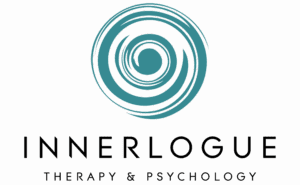Reconnect With Your Partner
We’ve all heard the phrase ‘life happens’ – but it’s absolutely true! As we begin to prioritize our careers, children enter the picture, or as couples navigate bills and logistics, long-term relationships can start to feel routine. What once felt lustful and spontaneous may now feel familiar or even stagnant.
I assure you – these shifts are a (completely) natural part of the relationship lifecycle (and sometimes even an indicator of a healthy relationship), creating a sense of distance between partners or reconnect with your partner. Fortunately, there are research-backed ways to reconnect and foster a deeper sense of intimacy. Here are six strategies, grounded in psychological science, to strengthen your relationship and rebuild connection.
1. The 5-Minute Daily Check-In
Consistent, meaningful communication is critical for maintaining intimacy in long-term relationships. Research by Dr. Sue Johnson, the developer of Emotionally Focused Therapy (EFT), emphasizes the importance of emotional responsiveness in relationships. Even a brief daily check-in, where partners ask about each other’s emotional well-being (or their day), can promote emotional attunement and reduce misunderstandings.
This daily ritual provides an opportunity to address any small concerns before they escalate and reinforces the emotional bond between partners. A simple five-minute conversation can be enough to keep communication open and connection strong. Couples who may benefit from Emotionally Focused Therapy can consult therapists who specialize in EFT, such as those at Innerlogue Therapy & Psychology.
2. Relive Positive Shared Memories
Nostalgia, the act of recalling positive past experiences, can have a profound effect on relationship satisfaction. A study published in Cognition & Emotion found that reminiscing about shared happy memories increases positive affect and relationship satisfaction.
By revisiting the places and activities that were significant in the early stages of the relationship, couples can rekindle the emotions associated with those experiences. This act of reminiscing strengthens the emotional bond and reminds both partners of the reasons they fell in love in the first place and helps reconnect with your partner.
3. Date Each Other
In long-term relationships and marriages, it’s easy to slip into routines and forget the importance of actively “dating” your partner. When a relationship is new, couples invest time and energy into creating special moments together, but over time, this effort can wane. Dr. John Gottman’s research emphasizes the significance of intentional connection in long-term relationships.
Couples who continue to “date” each other by planning meaningful outings or experiences report higher levels of relationship satisfaction. Dating isn’t just for the beginning of a relationship; it’s a way to maintain the emotional closeness that initially brought you together. Shocker – we can “date” our partners!
By making an effort to regularly schedule date nights – whether it’s trying a new restaurant, going on a weekend getaway, or simply cooking dinner together at home – couples can keep their relationship dynamic and engaging with intention to reconnect with your partner.
The key is to approach these moments with the same curiosity and enthusiasm as when the relationship was new, helping to reinforce the emotional bond and prevent the relationship from feeling stagnant. Here’s your permission to call your babysitter and book that reservation!
4. Engage in Playful Activities and Reconnect with your Partner
Play is an often-overlooked component of adult relationships, but research suggests that engaging in playful activities together can significantly enhance relationship satisfaction. Play fosters positive affect and increases dopamine, which helps reinforce feelings of closeness. Attachment theory also highlights the role of shared joy in developing secure bonds between partners.
Trying a new fitness class together, joining a club dedicated to a shared interest, or simply engaging in light-hearted competition can reignite feelings of connection and remind partners that fun is a vital aspect of their relationship.
This shared sense of playful competition not only fosters stronger teamwork and communication and reconnect with your partner – essential for effective ADHD parenting – but can also ignite a deeper emotional and physical connection, enhancing intimacy in all aspects of your relationship, including the bedroom!
Read More: Mental Health Clinics in Canada
5. Develop a Couple’s Bucket List
Shared goals create a sense of partnership and forward momentum in relationships. According to Locke and Latham’s goal-setting theory, setting specific, challenging goals increases motivation and engagement. By developing a couple’s bucket list – whether it’s traveling to new destinations, learning a new skill together, or tackling a joint project – partners create shared experiences that promote connection. The anticipation of achieving these goals together can also boost relationship satisfaction, providing a positive focus for both partners.
6. See a Couples Counsellor – Because Counselling Is SEXY!
Couples counselling is often portrayed in media and popular discourse as a last-ditch effort for relationships on the brink of collapse. But this perception couldn’t be further from the truth. Couples counselling can be proactive, even preventative, and is a powerful tool for couples who want to prioritize their connection and deepen their bond. In fact, professional counselling can be a healthy, pre-emptive step to strengthen communication, create strategies for managing conflict, and enhance overall relationship satisfaction.
You don’t need to have a problem to see a couples counsellor. I’ll say it again – you don’t need to have a problem to see a couples counsellor! Just as we go to the gym to maintain physical health, or the nail salon to walk out with a beautiful fall burgundy for an enhanced level of self-esteem, counselling can help maintain relationship health and esteem.
Seeking therapy shows a commitment to growth, connection, and continuous improvement. Emotionally Focused Therapy (EFT), for example, focuses on understanding and improving emotional bonds and has been shown to foster deeper intimacy and long-lasting satisfaction in relationships.
Couples counselling is for those who want to build a solid foundation, reconnect, and make their relationship the best it can be. Investing in counselling is investing in your relationship – and what could be sexier than that?
FAQs
1. How can therapy help in reconnecting with your partner?
Therapy provides a safe, neutral space to:
- Improve communication and resolve misunderstandings.
- Address underlying issues causing disconnection.
- Rebuild trust and emotional intimacy.
- Learn tools for managing conflict and fostering deeper connection.
2. Can relationship coaching or counseling help couples reconnect?
Yes, relationship coaching or counseling helps by:
- Offering strategies to enhance understanding and empathy.
- Guiding couples in setting and achieving relationship goals.
- Providing techniques to rebuild connection and reignite passion.
- Teaching healthy ways to navigate challenges together.
3. What are some ways a couple who are struggling in their relationship can reconnect?
- Schedule Quality Time: Engage in shared activities without distractions.
- Practice Active Listening: Show empathy and validate each other’s feelings.
- Express Appreciation: Acknowledge and celebrate small efforts.
- Revisit Positive Memories: Reflect on happy times to reignite emotional bonds.
Seek Professional Help: A therapist can guide couples through tailored reconnection exercises.
Written by: Hannah Reid

Hannah Reid
Counselling
Intern
Clients : Children 3+, Couples, Family, Disabilities, ABA Behavioural, Anxiety, ADHD, Parenting, Intimacy...
Language: English
Offers sliding scale
Looking for a trusted Calgary psychologist? Innerlogue Therapy & Psychology offers expert counselling services for individuals, couples, and families in Calgary and across Alberta.



